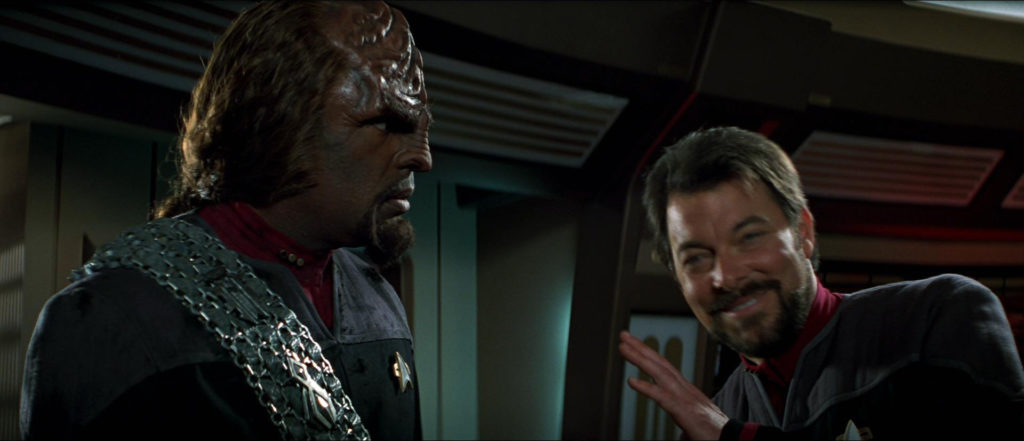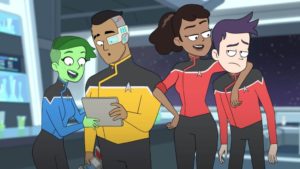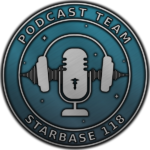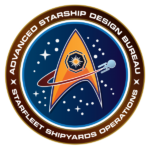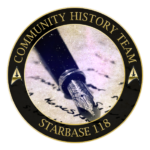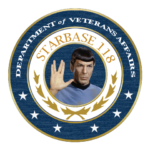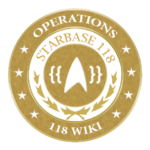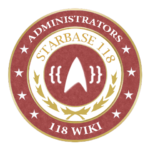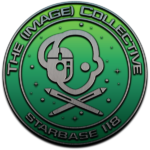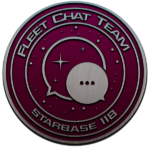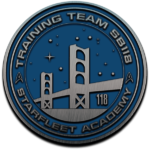Join us for another in a series of interviews with winners of awards from our recent 2021 Awards Ceremony. Our goal is to give you insight into how our fleet’s best simmers write and imagine their characters as well as learn about their OOC roles within our group.
This month we’re interviewing the writer behind Commander Serala (now Commander Jaelyne Isa) playing a Female half Human, Half Romulan (now Female Trill!) First Officer assigned to the USS Chin’toka. He won the Strange Medallion: “given to those who perform above the call of duty in the position of First Officer.”
DeVeau: In a previous interview, you mentioned that you had a lot of interest in a variety of RPGs. How did you get into role-playing, and what is some of your experience?
Serala: Thank you for having me, and while I may be playing Commander Isa now, don’t think Serala is gone for good. She’ll be back.
Serala: Now, to answer your question: I started back in 1977 with Advanced Dungeons & Dragons. My best friend at the time had gotten a copy of the Player’s Handbook and introduced me to the game. After that, the rest, as they say, was history. I have played in many different TTRPGS over the years, including all versions of D&D except 5E (which is still on my bucket list), Pathfinder (one of my favorites at the moment), GURPS, Rolemaster, Champions, Vampire the Masquerade, and I am sure there are many more on that list I have forgotten. I also played a PBeM version of Star Trek back in 2000 but had to leave abruptly, and to be honest, when I joined SB118 I actually thought I was rejoining that group. Turns out, this one is way cooler.
What made you decide to play a half Romulan? And how have you helped build the lore for the Romulan species?
Serala: I have been a Star Trek fan for about as long as I can remember. I was actually born while the second season of TOS was being filmed. And one of my favorite episodes was “Balance of Power,” which was the episode that introduced the Romulans to the Star Trek universe. I really loved the idea that they were so devoted to their concept of duty and loyalty. And when I saw “The Enterprise Incident,” it really just cemented it for me. When TNG brought them back, I was overjoyed. I loved the new look and the even more sinister tone of the race. “Face of the Enemy” became an instant favorite of mine.
Serala: Along with this, I had read a series of books by Diane Duane, collectively called “The Rihannsu Series”, which highlighted their concept of honor and duty. Diane Duane is unofficially recognized as being instrumental in creating what exists of the Romulan language outside of screen usage. So, given all this, it only seemed natural that I would want to play a Romulan. Unfortunately, in our group, Romulans are restricted, so I was able to get a compromise that allowed me to play to the Romulan heritage by having Serala be Half-Romulan, Half-Human.
Serala: I really latched onto the Romulan Republic when I joined SB118, and although I hadn’t played STO prior to that, I did get the game just to get a feel for them. Serala’s mother is now an Ambassador for the Romulan Republic, and I have been trying to work toward the possibility of an alliance with the Federation for them. It will be interesting to see how the emergence of the Romulan Free State will affect the whole Romulan dynamic as it gets implemented into our canon. Also, even though the Diane Duane books are not officially canon, I did implement some very key ideas into Serala’s personality, most especially the concept of mnei’sahe, also known as The Ruling Passion. Now, obviously, Serala is not loyal to the Empire, but she has adapted the concept and made it fit with Federation ideals and philosophies, and she’s very adamant about it. (Just ask her bestie, Lt. Commander Toryn Raga.)
What made you decide to aim for a higher rank in the fleet?
Serala: It almost seemed to be a natural progression for me. Having so much experience with roleplaying games, which includes many years of experience as a GM/DM, it just seemed to make sense that I would want to help create a storyline that fits into our overall universe. On top of that, I have really come to love this community and want to see it succeed. Being on staff helps me do that in an even greater capacity than I had been able to in the past.
What was different about being a first officer versus a regular officer or department chief?
Serala: That’s really a two-part question since you have an OOC side of the story and an IC side of the story. Out of character, it meant that I had more responsibilities to have to deal with. I was now responsible for the mentoring program on my ship, monthly reports to the CC, as well as input and discussion rights with the CC. That last part is pretty huge, as it meant that my voice would now be heard when it came time to discuss the various topics. It also meant that I was now second in command. If something happened to the Captain, or if they became unavailable for whatever reason, I was now the go-to, and that meant being able to handle the big decisions and remembering that I had a whole slew of wonderful COs and FOs out there to lend a helping hand if I had questions. At one point, I had temporary command when my Captain abruptly retired and had to lean pretty heavily on the Executive Council for guidance on how to handle the situation, for which I am extremely grateful.
Serala: When writing in character, it presented new challenges as well. First, I no longer had a clearly defined departmental role. When Serala was a Tactical/Security officer, I knew what that meant. Find strategies, combat scenes when those came up, write about how to improve (or restore) the security and safety of the ship, and so forth. Now, as a First Officer, my role was less clear to me. The biggest struggle was trying to figure out what to do on the bridge when the Captain was in charge and all the specialists were in their assigned roles. It’s a pretty grey area and I had to sit down with my COs OOC and get some guidance on that. How much authority does Serala have to issue orders while the Captain is on the bridge? But once I got past my concerns over that, it became a bit easier to sim that position.
After being placed on the Chin’toka, you were suddenly in command when the CO of that ship left suddenly. How did your previous experience help prepare you for that, and what did you learn from your experience in the CO chair for that brief time?
Serala: Yes, that was a very big shock to me. When I saw the resignation form come in, I was stunned for several minutes, but when I recovered, I immediately reached out to Fleet Admiral Wolf, and subsequently the Executive Council, for guidance on how to proceed. At that point, I had been the First Officer for a little more than half a year, and I had been with this crew my entire SB118 career, so we were very comfortable with each other, which I think was key to helping things go smoothly. We were actually transitioning from the Atlantis to the Chin’toka when it happened, and so I kept things going as normal until the EC was able to give me some guidance, which they did very quickly.
Serala: After that, I reached out to the crew and let them know what was happening and that I would be in command until the EC appointed a new CO for us, since I was only a Lt Commander at the time and therefore not eligible to assume permanent command. I really think that it was the combination of having the support and quick guidance of the EC, combined with the good rapport I had established with the crew that really helped me get through that period and lead the ship smoothly into a new CO. I had also been through one command change, so I had an idea of what to expect. So when Capt. Mei’konda was named as our new Captain, I worked with him to ensure he had everything he needed for a smooth transition since it was important to me to have him feel welcome and accepted.
Serala: As for what I learned from the experience? Well, all I can say is that I now have a better idea of what is involved in command. I was only in charge for a week, but I did see the difference between that and being a First Officer. It really gave me a new appreciation for our Captains and what they have to do to help our fleet run smoothly.
What advice would you give to those who hope to serve as a First Officer someday?
Serala: My first piece of advice is to talk to your Captain and First Officer. They have been through the process and know what’s involved and they are going to have the best insight on what you need to work on to achieve that goal. It’s a great goal, but it does take a lot of work to get there. But once you’ve done that, in my opinion, the best place to start is with the training team. This is where you will get the experience needed to learn how to mentor, to run a crew of officers, and just a cursory taste of what the bigger picture will look like.
Serala: Also, get involved in your ship’s mentoring program. That’s another great way to develop the skills needed for being a commanding officer. My next piece of advice is don’t rush it. Enjoy being able to just write. I have said it before, while I love my position as First Officer, there are times when I really miss just being another member of the crew. But when you’re ready, go for it! This fleet is always going to need great leaders, and being a First Officer is an amazing place to be.
Thanks for your time, Commander Serala – or should I say Commander Isa!
You can read more about Commander Serala and his current character, Commander Isa, on the wiki.

